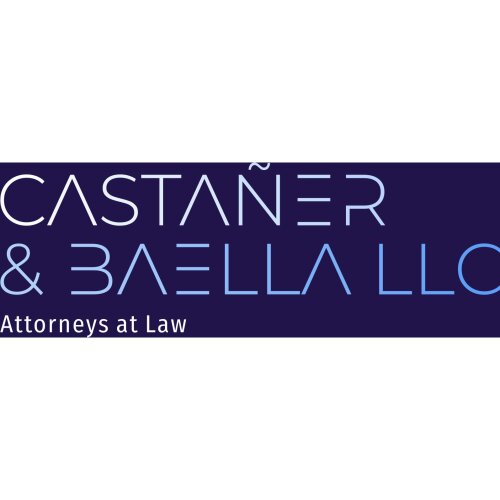Best Assault & Battery Lawyers in Puerto Rico
Share your needs with us, get contacted by law firms.
Free. Takes 2 min.
Or refine your search by selecting a city:
List of the best lawyers in Puerto Rico
About Assault & Battery Law in Puerto Rico
Assault and battery are serious offenses in Puerto Rico, and they are treated as separate crimes under the law. Assault is the intentional act of causing someone to fear that they will be harmed or touched without their consent, while battery involves actually causing physical harm or injury to another person. Both assault and battery can result in criminal charges and civil lawsuits.
Why You May Need a Lawyer
You may need a lawyer if you have been accused of assault or battery, or if you are a victim seeking justice. A lawyer can help protect your rights, navigate the legal system, negotiate plea deals or settlements, and represent you in court. They can also provide valuable legal advice and guidance throughout the legal process.
Local Laws Overview
In Puerto Rico, assault and battery are serious offenses that can result in criminal charges. The penalties for assault and battery vary depending on the severity of the offense and whether it is a first-time or repeat offense. It is important to be aware of your rights and the potential consequences of these charges in Puerto Rico.
Frequently Asked Questions
Q: What is the difference between assault and battery?
A: Assault is the threat of harm, while battery is the actual physical harm or contact with another person.
Q: Can I defend myself against criminal charges of assault or battery?
A: Yes, you have the right to defend yourself with legal representation in court.
Q: What are the potential penalties for assault and battery in Puerto Rico?
A: The penalties vary depending on the severity of the offense, but they can include fines, probation, community service, and jail time.
Q: Can I file a civil lawsuit for assault and battery in addition to criminal charges?
A: Yes, you can seek compensation for damages in a civil court case, separate from any criminal charges.
Q: How can a lawyer help me in an assault and battery case?
A: A lawyer can provide legal advice, represent you in court, negotiate on your behalf, and protect your rights throughout the legal process.
Q: What are my rights if I am a victim of assault or battery?
A: As a victim, you have the right to report the incident to the police, seek medical attention, and pursue legal action against the perpetrator.
Q: How can I find a lawyer for an assault and battery case in Puerto Rico?
A: You can search for a lawyer specializing in criminal defense or personal injury law, or seek a referral from a local bar association or legal aid organization.
Q: Can I get a restraining order against someone who has assaulted or battered me?
A: Yes, you can seek a restraining order or protective order to prevent further contact or harm from the perpetrator.
Q: What is the statute of limitations for filing charges for assault and battery in Puerto Rico?
A: The statute of limitations varies depending on the severity of the offense, so it is important to consult with a lawyer to determine the time frame for filing charges.
Q: How can I protect myself from assault and battery in the future?
A: You can take precautions such as avoiding confrontations, seeking help from law enforcement if necessary, and knowing your rights in case of an assault or battery incident.
Additional Resources
For legal assistance related to assault and battery in Puerto Rico, you can contact the Puerto Rico Bar Association or seek help from organizations such as the Puerto Rico Legal Aid Society.
Next Steps
If you need legal assistance in an assault or battery case in Puerto Rico, it is important to contact a lawyer as soon as possible. They can provide you with the guidance and support you need to navigate the legal system and protect your rights. Remember to gather any evidence or documentation related to the incident, and be prepared to discuss your case in detail with your lawyer.
Lawzana helps you find the best lawyers and law firms in Puerto Rico through a curated and pre-screened list of qualified legal professionals. Our platform offers rankings and detailed profiles of attorneys and law firms, allowing you to compare based on practice areas, including Assault & Battery, experience, and client feedback.
Each profile includes a description of the firm's areas of practice, client reviews, team members and partners, year of establishment, spoken languages, office locations, contact information, social media presence, and any published articles or resources. Most firms on our platform speak English and are experienced in both local and international legal matters.
Get a quote from top-rated law firms in Puerto Rico — quickly, securely, and without unnecessary hassle.
Disclaimer:
The information provided on this page is for general informational purposes only and does not constitute legal advice. While we strive to ensure the accuracy and relevance of the content, legal information may change over time, and interpretations of the law can vary. You should always consult with a qualified legal professional for advice specific to your situation.
We disclaim all liability for actions taken or not taken based on the content of this page. If you believe any information is incorrect or outdated, please contact us, and we will review and update it where appropriate.
Browse assault & battery law firms by city in Puerto Rico
Refine your search by selecting a city.










